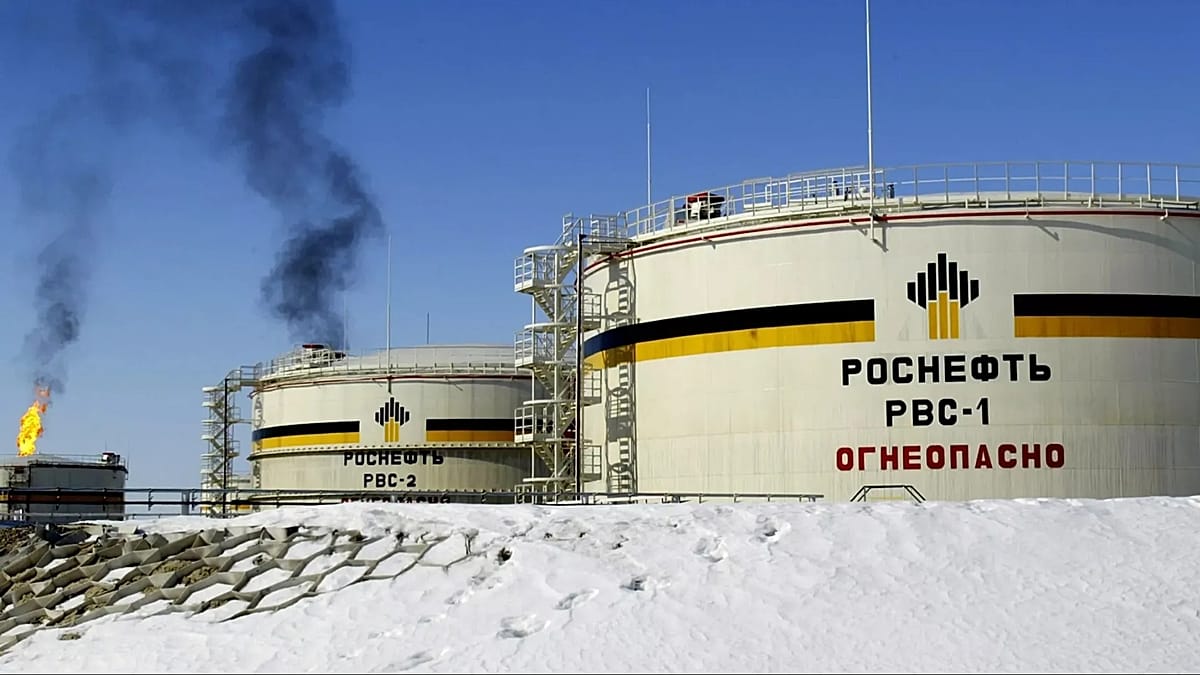Prime Minister Viktor Orbán said on Friday that Hungary would challenge the European Union’s plan to halt energy imports from Russia and take the case to the EU court.
Prime Minister Orbán accused Russia on state radio of trying to circumvent Russia’s veto on energy sanctions by using trade rules in its plan to phase out Russian oil and gas imports by the end of 2027.
“We are consulting the European Court of Justice on this issue,” Prime Minister Orban said.
“This is a clear violation of European law, the rule of law and European cooperation… They will pay a very high price for this.”
Landlocked Hungary remains heavily dependent on Russian fossil fuels and has sought exemption from EU sanctions and threatened a veto since Russia’s full-scale invasion of Ukraine in 2022.
Mr Orbán, who visited Washington last week, secured exemption from US sanctions for two Russian energy companies after meeting with US President Donald Trump at the White House.
In a press conference with Hungarian media after his meeting with President Trump, Prime Minister Orban said that Hungary had been “granted complete exemption from sanctions” for Russian gas delivered via the Turkstream pipeline and oil from the Druzhba pipeline.
“We have asked the president to lift the sanctions,” Prime Minister Orbán said. “We agreed, the president made the decision, and said sanctions would not apply to these two pipelines.”
The US State Department said Hungary has agreed to buy US liquefied natural gas (LNG) as part of the talks, and the contract is expected to be worth about $600 million (518.6 million euros).
US Secretary of State Marco Rubio said the exemption, which ensures Russian oil and gas continues to flow into Hungary, will last for one year.
On Friday, Prime Minister Orbán credited his close personal relationship with President Trump for the exemption, saying it would remain in place as long as he and the president were both in office.
Prime Minister Viktor Orban has said continued access to Russian energy is “essential” for his country and warned that cutting it off would lead to economic collapse, a claim disputed by some critics.
Hungarian leaders said on Friday that they were “considering other illegitimate measures” to avoid falling under the EU’s planned energy phase-out of Russia, but did not say what they might be.
Phase out Russian energy
In early May, the EU set a 2027 deadline for all 27 member states to phase out all remaining purchases of Russian energy, including liquefied natural gas (LNG).
The phase-out will take place in stages, starting with a ban on new short-term contracts until the end of 2025.
In the second phase, long-term contracts accounting for two-thirds of Russian gas will expire by the end of 2027.
Further restrictions will also be introduced to crack down on shadow fleets transporting Russian oil secretly and to block imports of Russian uranium and other nuclear materials.
Each member state will be asked to draft a national plan detailing how it intends to remove Russian gas, nuclear power and oil from its energy mix.
In 2024, the EU will spend an estimated 23 billion euros on Russian fossil fuels, more than military aid to Ukraine.
This imbalance has been a long-standing source of friction between member states, and despite constant pleas from Kiev, no agreement can be reached to completely phase out Russian energy.
Earlier this year, 10 EU countries – the Czech Republic, Denmark, Estonia, Finland, Ireland, Latvia, Lithuania, Poland, Romania and Sweden – signed a joint letter calling for a total ban on Russian gas, including LNG imports.
“Russia’s ability to continue its war effort is deeply tied to its energy revenues,” they write.
In contrast, Hungary and Slovakia rallied participants to oppose penalties, arguing that opposing them would put their economies and the EU’s competitiveness at risk.
Additional sources of information • AP








